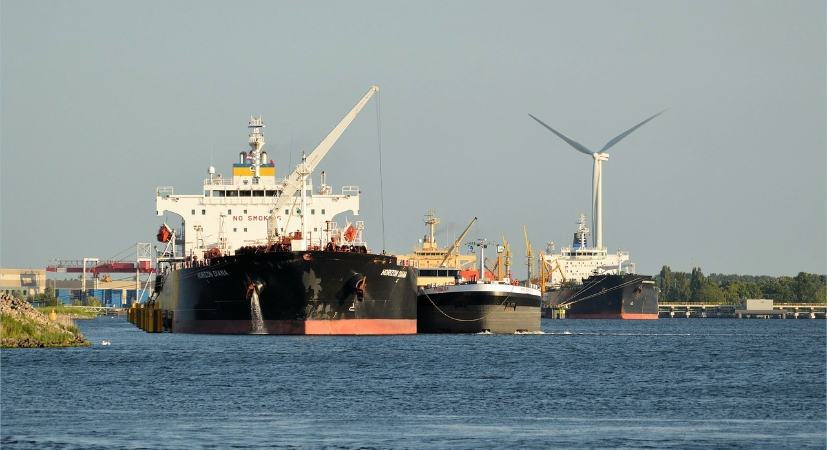
In a weekend op-ed for the New York Times calling for strategic decoupling from China, former U.S. Trade Representative (USTR) Robert Lighthizer attempts to rewrite trade history and the laws of economics. However, there is one thing he gets partially right: “The U.S. objective should be to continue trade and economic activity beneficial to us and to discourage any part that is not.”
The question is, who gets to decide whether trade and economic activity is beneficial or not: Hard-working Americans deciding how to spend and invest their money? Or politicians and bureaucrats based on which industries have the most political clout?
Consider this real-world example: A temporary suspension of tariffs on infant formula is scheduled to end this month. Starting January 1, Americans will pay a 25 percent tax on imported formula. The freedom to buy affordable infant formula benefits most Americans. But instead of putting the interests of Americans first, the government is about to return to a protectionist policy that instead benefits a relatively small number of dairy producers and their lobbyists.
Amb. Lighthizer’s track record as USTR suggests that Americans should view the suggestions he laid out with extreme skepticism. Trade policy in the Trump administration consisted of repeatedly capitulating to China on foreign policy in order to secure a headline-grabbing trade deal, hiking tariffs on goods from China in a failed attempt to force the country to change its policies, revising NAFTA to make it more friendly to labor unions, and imposing or threatening to impose tariffs on our allies.
- Jonathan Swan at Axios reported that when asked why President Trump had not imposed Treasury sanctions against officials tied to Chinese detention camps, Trump replied: “Well, we were in the middle of a major trade deal.”
- The Financial Times reported that President Trump told Chinese President Xi he would tone down criticism of China’s Hong Kong policies in order to revive trade talks.
- According to New York Times reporter Ana Swanson, Lighthizer pushed back on policies that could disrupt U.S.-China trade negotiations: “Mr. Lighthizer has also curtailed his public criticisms of China, instead touting Beijing’s efforts to uphold the trade pact and live up to its end of the deal.” [note: China did not live up to its end of the deal]“
One of Amb. Lighthizer’s most significant actions as USTR was launching a Section 301 trade investigation into China’s economic policies. U.S. goals included persuading China to adopt policies that would have strengthened its economy, as he explained in a 2019 interview:
“So the kinds of things that we're asking for are not anti-Chinese at all. Protection of intellectual property is not anti-Chinese. Stopping people from forcing transfer of technology is not anti-Chinese. In fact, the reformers would say it's pro-Chinese. It will help their economy, not hurt their economy.”
His Section 301 investigation and the resulting tariffs totally flopped. As the Trump White House confessed in its 2019 Economic Report of the President, “Rather than changing its practices, China announced retaliatory tariffs on U.S. goods.”
In his recent op-ed, Amb. Lighthizer writes that trade deficits are a transfer of U.S. wealth. If this view was correct, Congress could add $1.1 trillion a year to our economy by shutting down all U.S. trade. In reality such an action would be more likely to create the biggest economic depression since the 1930s.
His emphasis on trade deficits is somewhat surprising, given that the overall U.S. merchandise trade deficit during his tenure at USTR increased from $799.3 billion in 2017 to $913.9 billion in 2020.
In fairness to Amb. Lighthizer, that’s not his fault. Trade deficits are a result of underlying macroeconomic factors that have nothing to do with trade policy. More fundamentally, a trade deficit is not a transfer of wealth. When Americans import goods from other countries, those dollars are used either to buy U.S. exports or to invest in our economy. Either way, we benefit.
This is not to downplay legitimate concerns about China. But increasing tariffs on the things Americans need, as Amb. Lighthizer advocates, would weaken the United States relative to China.
National Taxpayers Union laid out several better approaches in “How Free Trade Can Counter China and Enhance American Competitiveness.” The best response to China is to reject Chinese-style central planning and to instead build on the source of America’s strength and prosperity: economic freedom.
Additional NTU reading:
Biden Administration Keeps Trade Taxes in Place Indefinitely Pending Further “Review”
Biden Administration Should Not Extend Costly and Ineffective Section 301 Tariffs
11 Reasons Robert Lighthizer is (Still) Wrong about Trade and Tariffs
How Free Trade Can Counter China and Enhance American Competitiveness
Tariffs Are Failing To Achieve Their Goals: Statement to the Office of the U.S. Trade Representative

